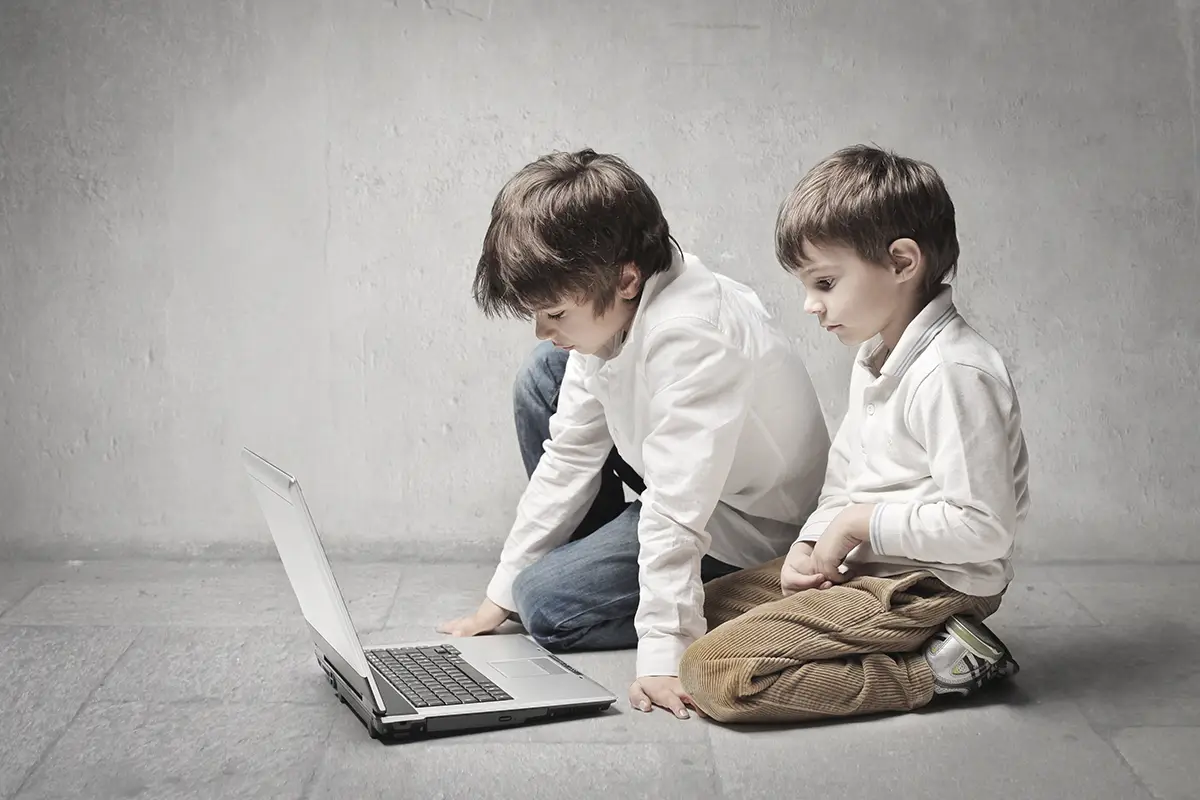A Parent’s Guide to Internet Safety for Kids
Let’s be real: Having our kids online is scary!
The tech world has changed significantly since we were young. The internet is a vast, digital playground for our children – filled with endless opportunities for learning, playing, and growing.
Similar to any playground, the online world has its share of potential dangers and risks. As parents, it’s crucial both to stay informed about what children are viewing and engaging in and to establish clear boundaries. This ensures their protection from accessing inappropriate and unsafe websites, games, and videos.
Understanding the Digital Landscape
The internet is a dynamic space that is constantly changing and evolving– I personally cannot keep up. In fact, I’m learning many of the latest trends and developments in session from the teens I work with!
The internet is a place where your child can play games, learn new things, socialise with friends, and express themselves creatively. However, it frequently gets used inappropriately. In session I regularly learn the truths — and harsh realities — about giving our children access to these tools.
Did you know there are apps where our kids can bully others and keep their actions completely anonymous?
The Emotional Impact
Unfortunately, some of our kiddos do not even realise that what they are doing is wrong because they see it happening so frequently with their peers that it becomes normal. It makes me question our own behavior as adults.
Our children are observing our interactions with peers, other parents, and even the cashier at the grocery store. Are we acting kind, friendly, and polite or are we hostile, angry, and impatient? No one is perfect, and at times it is easy to wrongly snap or exhibit inappropriate irritation. Personally, I am often the one who is in a rush, and to be sure I don’t “cross the line”, I am intentionally paying closer attention to my interactions to model the best behavior possible.
At the preteen and teen stages of development, our brains are not developed enough to understand and filter all the feelings experienced. Sadly, kids say mean and horrible things to others without thinking twice. As parents, it is our responsibility to try to nip that before it even happens. But the reality is that no one is perfect. So…
What do we do when our children make mistakes?
Our children’s mistakes can be a tough pill to swallow because we take their actions to be a direct reflection of who we are. Many parents choose to ignore their children’s inappropriate behaviors and not draw attention to them. For kids that have their own internal radar, understand that their actions did not feel good, and individually choose never to behave this way again, this approach may work. However, for the most part, children are unaware of the impact and social realities of their actions and need specific guidance from their parents on what steps to take going forward.
The best way to handle these situations is to walk our children – step by step – through owning their actions and apologizing, and then as parents setting boundaries and employing tools to prevent such actions from happening again. It is vital to carry out this process with our children in a loving way. We do not want them to feel embarrassed or ashamed, otherwise they will not come to us again if they find themselves in a sticky situation. The key is to repeatedly praise them for their honesty and for openly communicating what happened.
By taking these steps you are building the foundation for strong and consistent communication from your child.
Setting Up the Safety Nets
Now to the practical side of things, how do you actually help and protect your child from dangers on the internet? How do we get the ball rolling?
1. Open the Dialogue
Start by having open, age-appropriate conversations with your kids about internet safety. Make these discussions a regular part of your routine, just like you would talk about their day at school or their favorite TV show. Keep the tone light – never let it feel like a lecture!
Pro tip: Have the conversation in the car, kids do so much better when they do not have to make eye contact with their parents!
2. Co-Surfing is Cool
Spend time online together. Show interest in the games they play and the videos they watch. Learn that silly TikTok dance or start playing Fortnite. You will not regret this quality time, and your child will have these memories for a lifetime! This process not only helps you understand their online interests but also allows you to guide them toward safe online behavior.
3. Privacy is Paramount
We highly encourage you to work with your child to make sure all of their accounts are private and do not list any identifying information. Growing up surrounded by social media and internet access has made our kiddos all too comfortable with talking to strangers online. Reminding our children of appropriate people to talk to and identify who not to talk to online can not happen often enough.
4. Friend or Foe?
Discuss the concept of ‘stranger danger’ in the context of the online world. Just like in the real world, children should not chat with nor accept friend requests from people they do not know. It is one thing for children to be following gamers or influencers, but it is another for them to allow someone to follow them back. This concept is very confusing for kids, especially since having more followers or friends often makes them feel good about themselves.
5. Cyberbullying: Spot It and Stop It!
Talk about cyberbullying: what it looks like, and what to do if your child experiences or witnesses it. Encourage them to come to you or another trusted adult if they are ever uncomfortable with anything they encounter online. Reassure them that you will not be angry but proud of them for making the right choices and asking for help!
Tools at Your Disposal
Leverage technology to keep your children safe! Use parental controls to limit access to inappropriate content, monitor their online activity, and set boundaries on screen time. Remember, these tools are not to spy but to guide and protect.
I highly encourage making screen time something they earn. You can come up with a system where your child earns screen time points after
- Doing their chores
- Finishing their homework
- Earning good grades
- Going to bed on time
- Completing a challenging task.
As individuals, we generally tend to respect the things we have to work for more than things just handed to us. This follows suit for our kids: Having them earn tech time helps them develop respect for this privilege.
Staying Updated
The digital landscape is always changing, and keeping up can be a challenge. However, you can make active efforts to stay informed about the latest trends in online kids’ games, social media, and potential online risks. Don’t hesitate to seek resources and support when needed. Consider joining local Facebook parenting groups as you can typically get an idea of what other parents are seeing. Word travels fast in schools. Once one kid finds something new online, it is only a matter of time before they all are aware of it.
Let’s Team Up for Safety!
As a therapist working with children, I’ve seen firsthand the impact of the digital world on our kids. Let’s work together to make their online experience as safe and positive as possible.
If you ever feel overwhelmed or unsure, remember, you are not alone on this journey. Reach out to our team– We can provide the parenting tools to help make this scary battlefield a tool in your toolbox!
Together, we can create a safer digital playground for our children to explore, learn, and grow.
Happy parenting in the digital age!

